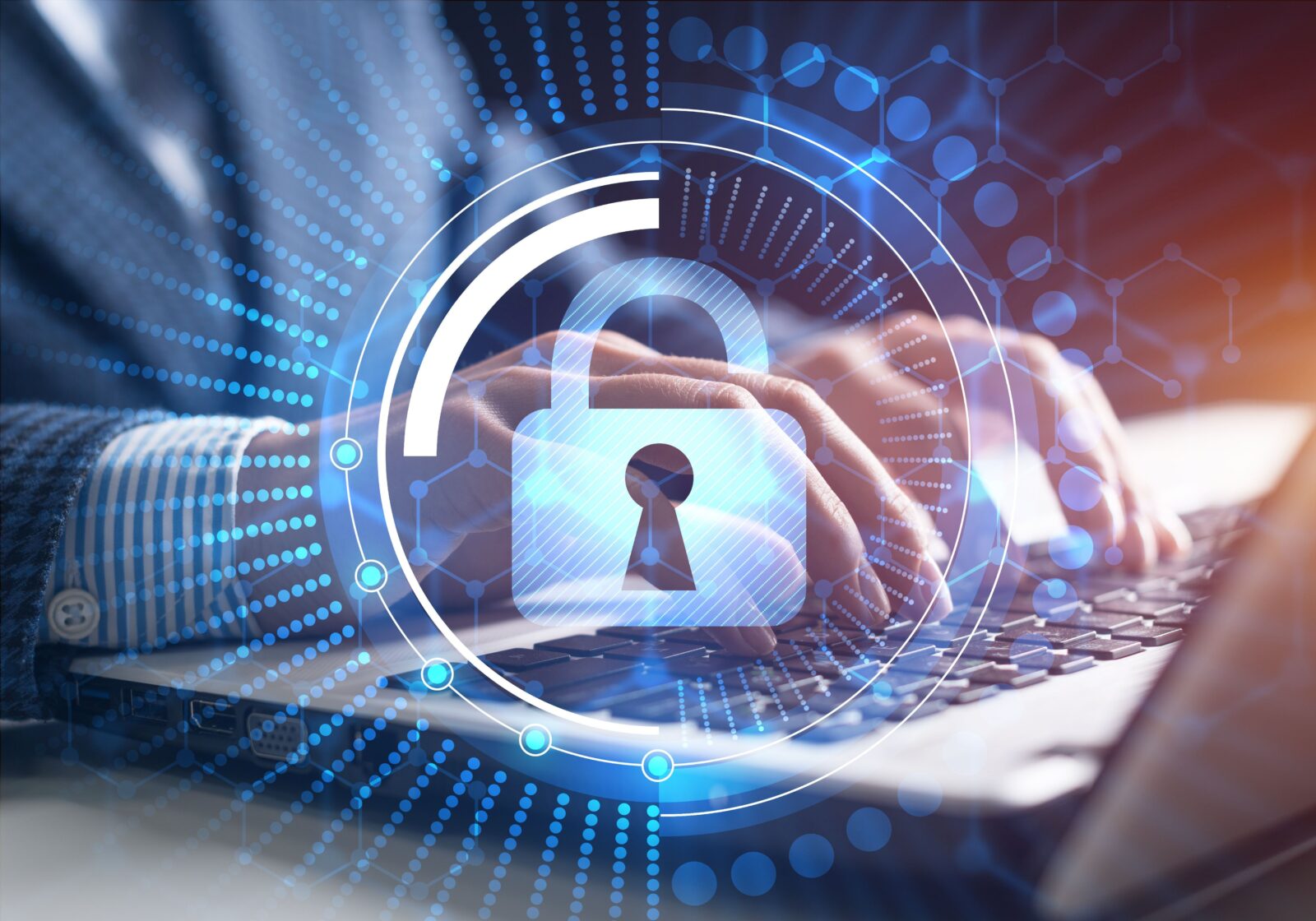Cyber security is the practice of protecting information systems and networks from cyber attacks.
In order to stay competitive and provide services that are valuable to customers, businesses invest in cyber security practices.
However, many businesses do not have a clear understanding of how cyber attacks happen or what steps should be taken to protect themselves from them.
Protect your digital world
Cyber security is important for all of us, but especially so if you are a business owner or have sensitive information on your digital devices. Here are some tips to help:
- Protect yourself from fraud by keeping an eye out for phishing emails that try to trick you into clicking on a link or downloading an attachment that contains malware.
- Be cautious when opening emails that come from strangers who claim they have found something in your inbox—it’s best to check the sender’s name before trusting them!
- If there is no return address (RMA), it could be spam mail; if there is only one word at the top of every line, this indicates that it was generated by an automated process; finally, if too many similar words appear together in one place (such as “and”), then this could also indicate spamming activity.
- Keep track of any suspicious activity on your computer using tools such as Malwarebytes Anti-Malware and Spybot Search & Destroy (or Spybot Search & Destroy Free).
- These programs can be downloaded free from www.[yourcompanyname].com/support/downloads_security_tools/. They will scan for malicious software and remove any threats before they cause damage!
Protect yourself from fraud
Cyber fraud is a growing problem, and it’s one of the fastest growing crimes in the world.
Cyber fraud occurs when someone uses computers and the Internet to defraud others by stealing or misappropriating funds, goods or services.
The most common types of cyber crime are identity theft, financial scams like phishing (fishing for personal information), online shopping scams, viruses and malware—which can damage your computer or steal personal data—and hacking into computers for other purposes like blackmailing individuals with their emails or bank accounts numbers.
Protect against cyber-criminals
Cyber-criminals are a serious threat. They can create havoc on your digital world, but you can protect yourself from them.
- Cyber criminals are becoming more sophisticated and creative with their attacks.
- They’re also getting organized, which means they’re targeting larger numbers of people with their tactics.
- Finally, cyber criminals are becoming increasingly aggressive—they’ll compromise any system that’s connected to the internet if it gets in their way!
Protect your data from theft
Data theft is a serious problem. Data theft can lead to identity theft, financial loss, reputational damage and even loss of business or customers’ trust.
Protect your data by keeping it secure in physical locations: If you have sensitive information on a laptop that you use at work or school, make sure it’s locked away when not in use—and never leave it unattended!
You should also make sure that any web browsers used for accessing websites are password protected; this prevents anyone from accessing the content without permission from you (or whoever owns the computer).
Secure your identity and personal information
- Identity theft is a serious problem.
- Protect your personal information and identity.
- A secure password should be used to protect all of your accounts, especially social media accounts.
- Make sure that you change passwords regularly, but don’t use the same one in more than one account, as this could make it easier for hackers to crack them all at once using brute force attacks (which are effective).
Cyber security is important for all of us.
Cyber security is important for all of us. It’s a global problem, affecting everyone in the world.
Cyber security needs to be prioritized and handled with care so that we can all have confidence in our digital worlds, whether it be through financial transactions or simply sharing information with friends or family members online.
What is cyber security?
Cyber security is the process of protecting computer networks from unauthorized access, misuse, modification or destruction.
The term is often used to describe only those things that are related to information security and does not include broader IT issues such as user access controls or regulatory compliance.
Cyber attacks are becoming more common as technology continues to advance at an exponential rate; this means you need to be prepared for these kinds of situations if you want your business or organization to grow successfully in today’s marketplace.
As cyber security becomes more important than ever before (and with many companies experiencing significant financial losses due to cybercrime), it’s no surprise that most organizations now make it a high priority on their list of priorities when considering new technology purchases or upgrades within existing systems.
How do businesses protect themselves against cyber attacks?
A business can protect itself against cyber attacks by using a firewall and virtual private network (VPN). A firewall is a tool that blocks unauthorized access to your network, while a VPN encrypts data passing through it.
Businesses should also use secure web browsers, email clients and other applications that provide strong encryption of data before it leaves the organization’s systems. For example:
- Use an encryption tool such as PGP or OTR – these are free to download and easy to use; they will make sure no one can read what you send over the internet even if they have access to all files on your computer!
- Use HTTPS instead of HTTP when accessing websites – this means that rather than just being sent down as plain text (which everyone reads).
- everything will come out encrypted so if someone does try snooping around then at least they won’t be able see anything useful! You may need some technical knowledge here but don’t worry – there are plenty of tutorials online too which explain everything step-by-step.”
Who’s the biggest threat in terms of cyber crime?
The biggest threat in terms of cyber crime is not your neighbor or your coworker. It’s cyber criminals, and they’re getting more sophisticated every day. Cyber criminals are very well trained, organized, and funded—and they’re not afraid to use violence if necessary. In fact, many of them have been known to do just that when confronted by law enforcement or other authorities who come after them on issues like child pornography (there are several cases where we’ve seen this).
Cyber security is important because it protects us from all kinds of threats: identity theft; social engineering scams; viruses; malware infections; phishing attempts (where someone impersonates another person through email); etcetera…
How can a business protect itself from hackers?
- Use a firewall.
- Use a virus scanner.
- Use spyware scanners and malware removal tools to keep your computer safe from hackers, viruses and other threats.
- Keep your password manager up-to-date with the latest recommendations for best practices in security and privacy (the same goes for all of the other tools listed here).
- Use secure websites that have been tested by experts at websites such as Google Chrome or Edge/IE — these sites will be scanned for malicious code like viruses before they’re loaded onto your browser so you don’t get infected when visiting them!
- If you’re using Firefox instead of Chrome or Edge/IE, then make sure to install an add-on called NoScript which will do just this: prevent Javascript code from running on certain pages if it’s not needed – this prevents hackers from accessing sensitive information stored within those webpages themselves (e..g., bank accounts).
Cyber security keeps your data safe.
You may think that cybersecurity is just about protecting your data, but it’s actually much more than that. Cybersecurity protects your business from hackers and criminals—and it can be done in many ways, including:
- Securing the network by making sure all devices are updated with the latest patches and anti-virus software.
- Ensuring users have strong passwords and two-factor authentication (2FA) on their email accounts so they cannot be hacked into by an unauthorised person using their own password.
What is cyber security?
Cyber security is the protection of a computer network from cyber attacks. It encompasses a range of measures, including:
- Preventative measures to protect against threats before they occur. For example, you can use an anti-virus program or make sure that your operating system is up-to-date with patches and updates from Microsoft.
- Proactive measures that detect an attack in progress and shut down the damage before it can spread too far across your network or server.
- If you don’t know about an attack until after it has been successful (if there’s no time to prevent it), then this would be considered a reactive measure rather than proactive because there isn’t anything done beforehand to prevent such an event from occurring in the first place!
- But if someone tries unsuccessfully many times before giving up on their efforts then this could be considered reactive since they didn’t get ahead by trying again – only by waiting until something happened during which point stopping what was going wrong wasn’t possible anymore.”
The threat landscape
The threat landscape is changing. The threats that existed in the past are no longer relevant and many of them have been replaced by new ones.
The threat landscape is becoming more complex and digital, which means that organizations must focus on protecting their data regardless of where it resides or how they store it.
This can be done through encryption, authentication and access control technologies as well as best practices for protecting sensitive information such as names, addresses and phone numbers.
The global nature of business has also changed everything about cyber security—companies must now deal with both domestic attacks from within their own borders while also dealing with external threats from overseas sources who may not even speak your language!
The value of cyber security
The value of cyber security is a lot more than just the price you pay for it. In fact, cyber security has many benefits that businesses and consumers can enjoy.
Let’s take a look at some of them:
- Cyber security helps to protect our digital world from being invaded by hackers and other malicious actors. This ensures that no one can break into your data or steal your information without you knowing about it first—and then having time to stop them from doing so!
- It also means that if someone does manage to breach your system somehow, they won’t be able to hide their tracks very easily because there will be so much evidence pointing back towards them as soon as possible after attacking any part of this system—including every single file stored within its servers (or even online).
- Cybersecurity also provides peace-of-mind knowing that all sensitive data belongs only where it belongs – especially since most people don’t realise how susceptible their personal information might become if left unprotected on various platforms like social media networks such as Facebook Messenger etcetera…
How is cyber security done?
Cyber security is not just about technology, or the internet. It’s a team effort that requires collaboration between the people who are responsible for maintaining it and those who use it.
Cyber security involves four key areas:
- Technology—this includes everything from software to hardware (and anything in between). When you hear someone say they use “cyber security,” they’re usually referring to their computer’s firewall or antivirus software as well as other devices such as laptops/desktops; mobile phones/tablets; wearables like smartwatches or fitness trackers; even cars with connected infotainment systems (like Apple CarPlay).
- These devices all need to work together so that users can get access through one portal instead of having multiple ones open at once on different screens in an attempt to keep things organized while still being secure against cyber attacks happening around them at all times…
Who should be involved in cyber security?
Cyber security is the responsibility of everyone in your company. Everyone should be involved in cyber security training, awareness, and response.
Everyone should be aware of the threat landscape (what’s going on with cyber crime today). They need to know what vulnerabilities could impact them or their business, and how they can protect themselves from those risks.
Everyone needs to understand their responsibilities for keeping information secure: who has access to what data? Who can do what with it? How often does this happen? What tools does he/she use when doing so? Is there anything else I should know about him/her before I hire him/her (or her)
When should we do it?
When you need to protect your business:
- You’re a small business and have less than 100 employees.
- Your company has been hacked and lost data, like customer records, financial information or intellectual property (IP).
- You have an existing cybersecurity program but are worried that it may not be enough to keep up with the latest threats.
The basics of cyber security
Cyber security is a multidisciplinary field that involves people, data, technology and processes. It’s not just about protecting your network from hackers—it’s about protecting your company from financial loss or reputational damage.
Cyber security has become a key business issue for many organizations today because of threats like cybercrime, online fraud and identity theft; it also makes up one of the fastest-growing industries in terms of revenue growth over recent years (Source: [https://www.evernotecom/blog/]). But despite its importance to businesses large and small alike, there are still some common misconceptions about cyber security that can lead to misunderstandings about how best to protect yourself against these types of attacks:
Protecting your digital world
Protecting your data is essential. It’s not easy, and it won’t be cheap. But the alternative—ignoring the threat altogether—is a risk you simply can’t afford to take.
As more people become aware of cyber security threats, there will be a growing demand for skilled professionals who understand protecting digital assets and responding to attacks in real time.
This means that training will be an increasingly important part of your business strategy moving forward!
Cyber threats have been around since the invention of the internet.
Cyber threats have been around since the invention of the internet. However, they’ve evolved over time and become more sophisticated, widespread and complex.
In fact, cyber criminals have become so good at what they do that it’s now considered a full-time job for many people in our digital world.
These days there are many ways to be infected by malware or ransomware—including through email attachments (like those from phishing scams), visiting websites with malicious code embedded in them and even by clicking on links within social media posts like Facebook Messenger or WhatsApp conversations with an unknown sender who claims he needs access to your computer files in order for you to receive something important from him/her/itself!
Many organizations are not prepared for cyber attacks.
Many organizations are not prepared for cyber attacks. This is because they don’t know what to do, and they don’t even think about it. There are other reasons as well:
- Many organizations don’t feel that their cybersecurity needs are being met by the current state of affairs in the industry.
- Some companies do not have any formal processes in place to manage their security teams or handle threats; others rely on ad hoc methods of dealing with threats like patching systems manually and using antivirus software without any kind of strategy behind it.
Cyber Security 101
Cyber security is a growing concern for businesses of all sizes. As more and more consumers turn to the internet for their daily needs, they’re also increasingly vulnerable to cyber attacks.
But cyber security isn’t just important for large companies — it’s important for small businesses as well.
Cyber threats have become so prevalent that it’s impossible to ignore them anymore; even if you’ve never been hacked in your life or experienced any online theft or fraud personally, chances are high that someone you know has been affected by one or another type of attack (or several).
Whether it’s personal information being stolen or your company’s confidential data being leaked on social media sites like LinkedIn or Twitter—or worse yet—your business’ entire existence could be jeopardized by hackers breaking into its systems and stealing valuable information from them.
The Importance of Cyber Security
Cyber security is a serious issue that affects businesses, individuals and governments. Cybersecurity is important for everyone because it can help prevent the loss of money or data, or even the loss of life.
Cyber attacks are on the rise, with an estimated 1 in 4 organizations suffering some kind of cyber attack in 2019. While most companies have adequate safeguards in place to protect against attacks like viruses and phishing emails.
they may not be prepared to deal with more advanced threats like ransomware or cryptojacking. Effective cybersecurity requires continuous monitoring and maintenance so you’re ready when your network becomes vulnerable again—and at a time when there’s no guarantee it won’t happen again soon!
How to Make Your Business More Secure
If you’re a business owner, the importance of cybersecurity is no longer academic. Cybersecurity is a crucial part of your company’s mission: it protects your data and identity from cybercriminals, fraudsters and hackers.
But how do you ensure that your business can stay secure? Here are some ways to protect yourself:
- Protect Your Data – Your most valuable asset is the information on which you base decisions about what products and services to offer customers.
- But if someone gets hold of that information—or worse yet, if they steal it outright—you could lose everything! That’s why it’s important for businesses with sensitive customer data (such as financial records) to employ robust security measures when storing sensitive materials such as credit card numbers or Social Security numbers.
- Protect Yourself From Fraud – Fraudulent emails purporting to be from banks asking for payment details in order for them not be investigated by law enforcement agencies are just one example where criminals try their hand at impersonating legitimate institutions so often nowadays.
- another way these scammers try make money off unsuspecting victims is by tricking them into giving up personal information such as bank account numbers through phishing scams where hackers attempt sending out fake emails asking users who have visited various websites within seconds.
- after each other without any delay whatsoever between those two events happening simultaneously while both parties think nothing out of ordinary happened at all until later when they find themselves locked out completely unable access any website page anymore because whatever password was used previously won’t work anymore due either being too long/complex.
- simply not existent anymore due having been forgoten over time since last used sometime ago now forgotten completely except maybe remembering something vague like “password?” but even then there wouldn’t necessarily mean much without knowing what exactly happened inside each site visited while browsing around online
Protecting Sensitive Data
Sensitive data is any type of information that can be used to identify a person, organization and/or institution. This can include financial information, trade secrets, medical records and personal data such as social security numbers or passport information.
Because it’s so important to protect sensitive data from cyber attacks, it’s critical to have an effective cybersecurity policy in place. Your organization should have policies in place that address:
- How employees are responsible for protecting their own devices (e-mail accounts; computers)
- How they’re allowed access to sensitive files on laptops and desktop computers
- The kind of encryption software they use when sending messages over the internet
Making Your Business More Secure with Data Backup and Recovery Plans
When you think of cyber security, what comes to mind? Do you picture a hacker breaking into your company’s systems and stealing valuable data? Or do you picture a breach where hackers gain access to employee passwords and then use them to access other parts of your business?
The reality is that there are many different types of threats out there—and they can be hard to predict or prevent. One thing we know for sure is that backups are important; they’re not just luxuries! They’re necessities—and they’re the first line of defense in protecting your data from being compromised.
Backups allow businesses time for incident response procedures when something does happen (like an employee accidentally sending confidential information over email), but also allows them time during normal hours when employees aren’t working on computers or smartphones because having backups means less down time spent recovering from any issues with those devices
Cybersecurity is necessary for any business.
Cybersecurity is not just about protecting your business from hackers. It’s also about protecting your business from all kinds of threats, including internal ones.
Cybersecurity is a necessary component of any digital business, but it can be overwhelming for small and mid-sized companies that don’t have the resources or expertise to manage the process themselves. If you’re looking for help with cyber security protection, look no further than [us](https://www.sucuri).
Keeping up with the latest threats requires constant vigilance!
Cyber security is a 24/7 job. It’s not just something you do when you’re looking at your computer, it’s also something that happens when you’re asleep and even when you’re not at work.
The threats are constantly changing and evolving, so even if the last few months haven’t been so bad for cyber attacks (as opposed to last week), there will always be new developments coming down the pipeline.
Cyber security is a never-ending battle against hackers who try their best to break into systems; this makes it very difficult for businesses or individuals who want protection from this threat!
Conclusion
Cyber attacks have become more common in recent years, and companies need to be prepared for them. Cyber security is a critical part of any business today, but it’s also becoming increasingly complex.
Organizations need to protect themselves from fraud and cyber criminals who want access to sensitive information or data.
This article will help you understand how cyber attacks happen and what can be done about them—and why it’s so important that your organization takes these steps today!
If you want more informative content about it you should visit out site postingon.com.











Leave a Reply